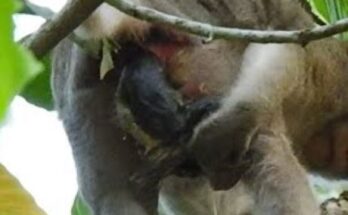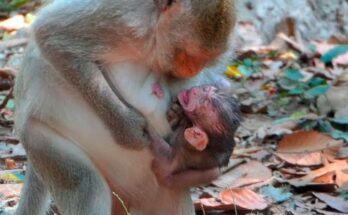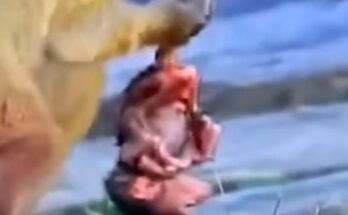The bond between a mother and her offspring is often seen as one of the strongest in nature. In the case of monkeys, maternal care is typically vital for the survival and development of the young. However, there are instances where a mother monkey may exhibit neglectful or even harmful behavior toward her infant. This phenomenon, while not the norm, can shed light on the complexities of animal behavior.
A mother monkey that shows little care or affection for her young might do so for several reasons. One explanation could be stress or poor health. In overcrowded environments or under conditions of food scarcity, a mother may lack the resources—both physical and emotional—to properly care for her infant. Similarly, young or inexperienced mothers might not fully understand how to care for their offspring, leading to neglect.
Another possible factor is the infant’s condition. If a baby monkey is weak, ill, or perceived as unlikely to survive, the mother may instinctively withdraw her efforts. This seemingly harsh behavior can be viewed as an evolutionary strategy, allowing the mother to conserve her energy for future offspring with better chances of survival.
Social dynamics within the group can also influence maternal behavior. In highly hierarchical monkey societies, mothers lower in rank may face bullying or exclusion, which could hinder their ability to nurture their young.
The lack of maternal care has profound consequences for the infant. Without the protection, guidance, and nourishment provided by the mother, a young monkey is left vulnerable to predators, illness, and social isolation. Over time, these experiences can impair its physical and psychological development.
While such behavior may appear cruel from a human perspective, it serves as a reminder that survival in the wild is a delicate balance shaped by environmental pressures and instinctual responses.


